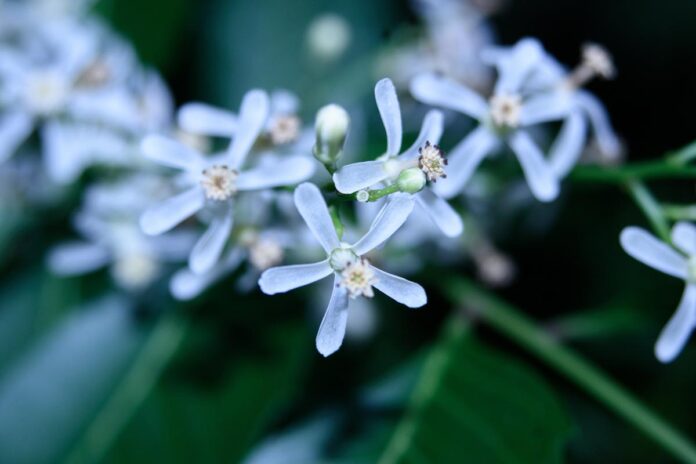INTRODUCTION:
Jal Neem (scientific name: Azadirachta indica var. sinetis or sometimes Azadirachta indica itself) is a variety of the neem tree, known for its strong medicinal properties. It is native to the Indian subcontinent and is widely used in traditional medicine, especially Ayurveda.

- Hindi: Neem, Nim, Nimba
- Tamil: Vembu, Vempu
- Bengali: Nim, Nimgachh
- Konkani: Beva-rooku
- Marathi: Kadunimb
- Gujarati: Leemdo
- Kannada: Bevinmar, Kahibevu
- URDU: JAL NEEM
- Telugu: Vepa
- Sanskrit: Nimba, Prabhadrah
- English: Neem, Margosa, Indian Lilac
HEALTH BENIFITS:

- Antibacterial and Antifungal
Jal Neem has strong antibacterial and antifungal properties that help fight infections and prevent the growth of harmful microbes on the skin and inside the body. - Skin Health
It is used to treat various skin conditions such as acne, eczema, psoriasis, and fungal infections. Its anti-inflammatory properties soothe irritated skin and promote healing. - Detoxification
Jal Neem helps purify the blood by removing toxins, which supports overall body detoxification and improves immunity. - Oral Health
It is effective in maintaining oral hygiene by reducing gum inflammation, preventing bad breath, and combating oral bacteria. - Anti-inflammatory
The herb reduces inflammation in the body, making it beneficial for arthritis, joint pain, and other inflammatory disorders. - Natural Insect Repellent
Jal Neem is used to repel mosquitoes and other insects, which helps prevent vector-borne diseases. - Supports Digestive Health
It helps in improving digestion and relieving stomach issues such as bloating, indigestion, and constipation. - Immune Booster
Regular use of Jal Neem may strengthen the immune system and improve resistance against infections.
Side Effects of Jal Neem

Allergic Reactions:
Some people may experience skin irritation, redness, or allergic reactions when using Jal Neem topically.
Gastrointestinal Issues:Excessive consumption may cause stomach upset, nausea, or diarrhea.
Pregnancy and Breastfeeding:Jal Neem is not recommended during pregnancy or breastfeeding as it may affect uterine contractions or be unsafe for infants.
Low Blood Sugar:Neem products can lower blood sugar levels, so people with diabetes should use them cautiously and monitor their blood sugar closely.
Toxicity in High Doses:Consuming large amounts of neem extract or oil internally can be toxic and may cause liver damage or other serious health issues.
Drug Interactions:Jal Neem might interact with medications such as diabetes drugs, blood thinners, or immunosuppressants.
How to Use Jal Neem
1. Topical Application (For Skin Care)
- Neem Water or Extract:
Use diluted Jal Neem water or extract as a natural toner to cleanse your skin and help treat acne or infections. - Neem Paste:
Crush fresh Jal Neem leaves to make a paste. Apply it to affected areas for soothing inflammation or skin conditions. Leave it for 15-20 minutes, then rinse off with lukewarm water.
2. Oral Hygiene
- Neem Water Rinse:
Use Jal Neem water as a mouthwash to reduce gum inflammation, fight oral bacteria, and maintain oral health.
3. Internal Use (Only Under Guidance)
- Neem Juice or Decoction:
A small amount of Jal Neem juice or boiled decoction may be consumed for detoxification and immune support. Start with a very low dose. - Capsules or Supplements:
Available in the form of herbal capsules or tablets standardized for neem extract. Follow the dosage instructions on the product label or as advised by a healthcare professional.
4. Insect Repellent
- Neem Water Spray:
Spray Jal Neem water around living spaces or on the skin (after patch testing) to repel mosquitoes and insects naturally.




